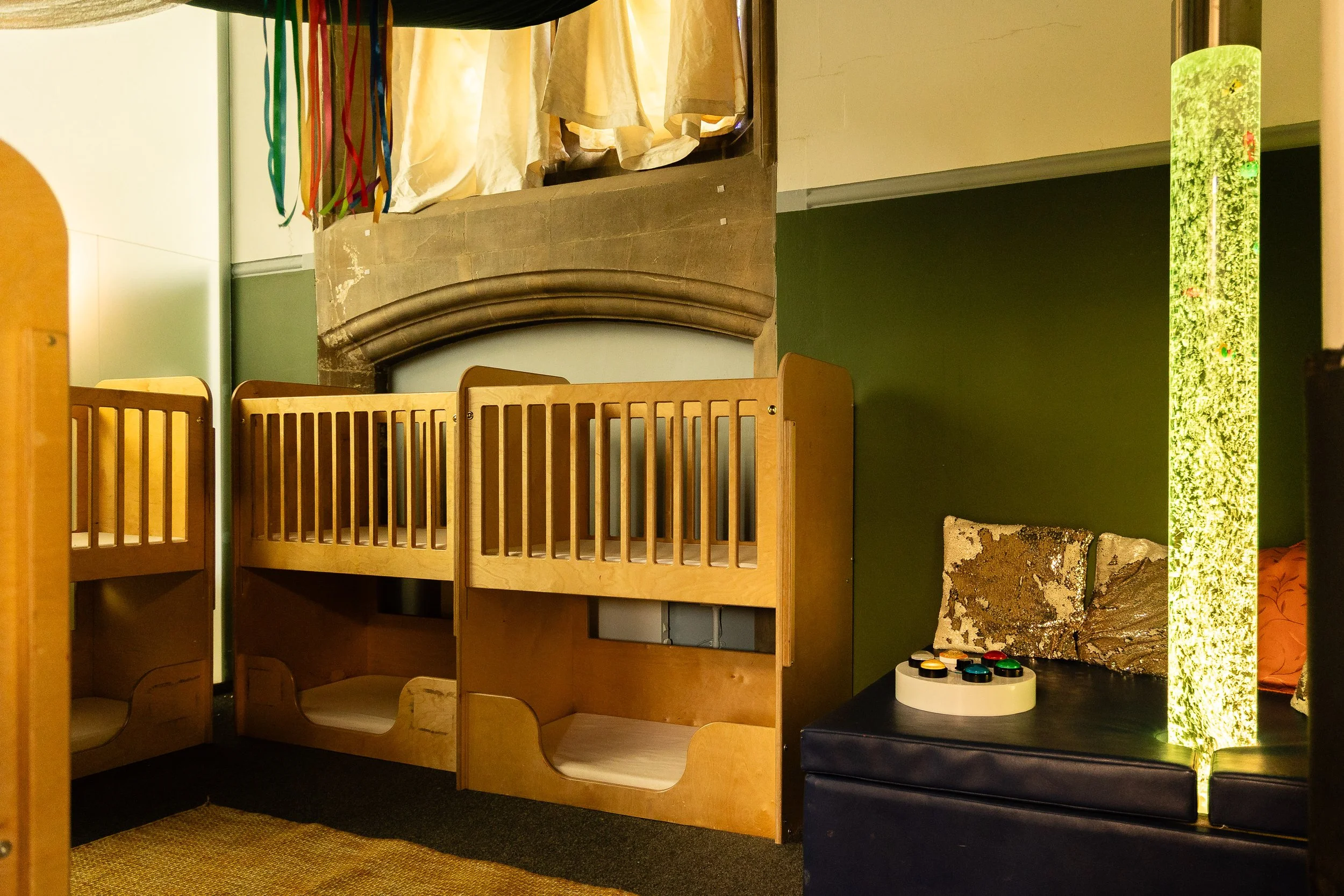
Sleep and Wellbeing

Helping children rest deeply, confidently, and consistently, at nursery and at home
At KatieB Kids, we believe that sleep is one of the most important foundations for a child’s wellbeing, learning, and emotional development. Good-quality rest supports concentration, mood, physical growth, memory, and overall happiness, but it isn’t just about how much children sleep. The quality and consistency of sleep matter just as much.
When children sleep well, they feel calm, focused, and ready to explore the world. But for many families, achieving that restful rhythm can sometimes feel challenging. That’s why we take a nurturing, consistent, and research-informed approach to sleep, supporting healthy habits both at nursery and at home.
On this page we explore what helps children rest well, and how small, simple routines can make a big difference to your child’s day and night.

What helps children sleep better?
Getting a good night’s sleep is often linked to something called sleep hygiene, the routines, environment, and habits that prepare the body and brain for rest.
Here are four evidence-based ways to support high-quality sleep:
Set a consistent sleep schedule
Children thrive on predictability. Waking up and going to bed at the same time helps regulate the body’s internal clock.
Try at home:
Keep wake-ups and bedtimes as consistent as possible (including weekends).
Balance daytime naps carefully — too much daytime sleep can disrupt nights.
Build a calming bedtime routine
Repeating the same steps every evening signals to the brain that sleep is approaching.
A simple routine might include:
a warm bath
a book together
soft lighting and calm voices
climbing into bed at the same time each night
Tip: Aim for at least 30 minutes of wind-down time.
Encourage healthy day habits
What happens during the day has a huge impact on sleep at night.
Spend time outdoors — natural daylight helps regulate circadian rhythms.
Include physical activity, preferably earlier in the day.
Avoid stimulating activities or screens close to bedtime.
Create a sleep friendly space
Children sleep better when their environment feels safe, predictable, and soothing.
Support good sleep by:
choosing a comfortable mattress and quality bedding
keeping the room cool (16–20°C)
making the room as dark as possible
minimising noise and distractions

Safe Sleep for Babies
We follow The Lullaby Trust safe sleep guidance at KatieB Kids.
For babies, safe sleep includes:
a firm, clean mattress
well-fitting sheets
no bumpers, toys, or loose bedding
room temperature between 16–20°C
always placing babies on their backs to sleep
These principles support safe, restful sleep during a crucial period of development.
How We Support Sleep at KatieB Kids
We work closely with families to understand each child’s sleep needs and ensure consistency between home and nursery.
Across our nursery, we ensure that:
every child has their own sleep bag with individual bedding (washed weekly)
all cots, mattresses, and sleep mats meet British safety standards
our sleep rooms are calm, low-light, and designed for deep rest
consistent sleep routines are followed
children spend time outdoors every day
physical play is embedded throughout our curriculum.
We know bedtime routines and sleep challenges can look different for every family. Our educators are always available to support you , whether it’s a quick chat at handover or a longer meeting to discuss specific concerns.
Together, we can help your child develop:
healthy sleep habits
emotional regulation
predictable rhythms
a positive relationship with rest
Because when children sleep well, they learn, play, and thrive well too.

How Much Sleep Do Children Need?
Sleep needs change as children grow. Below is NHS-based guidance for a 24-hour period (including naps):
4–12 months: up to 16 hours
1–2 years: 11–14 hours
3–5 years: 10–13 hours
6–12 years: 9–12 hours
13–18 years: 8–10 hours
Every child is different; these numbers are a helpful starting point, not a rule.
In Lower Nursery
Children nap daily in calm, dedicated sleep rooms designed especially for their age.
In Prescolare
We create a relaxing, nature inspired sleep environment with comfort, familiarity, & independence at its heart.






